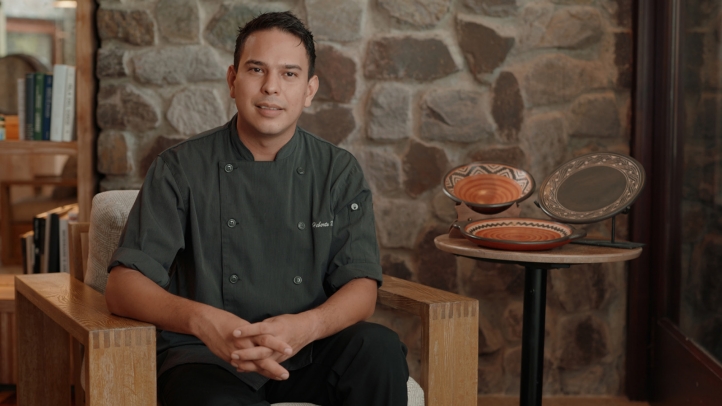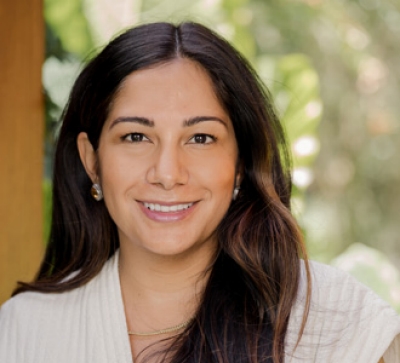Chef Heberto Mejia of Bahia Restaurant at Four Seasons Resort Peninsula Papagayo, Costa Rica, Embarks on Inspirational Culinary Journey to Boruca Indigenous Area






Chef Heberto Mejia, head chef at Bahia Restaurant at Four Seasons Peninsula Papagayo, Costa Rica, recently undertook a transformative gastronomic retreat to the Indigenous area of Boruca in the south of Costa Rica. This immersive experience, spanning five days, was dedicated to exploring the rich culinary heritage of the Boruca people and fostering a deep connection with their cultural roots.
During the retreat, Chef Heberto Mejia engaged in a variety of activities aimed at understanding and incorporating the Boruca gastronomy into his culinary expertise. The itinerary included a welcome ritual to acquaint him with the tribe, an introductory talk on Boruca culture, workshops on Boruca gastronomy and its significance in their worldview, and a traditional walk through the chagüite (traditional garden) for ingredient and material collection.
Among the highlights of the retreat were workshops on medicinal gastronomy, applied herbalism, and an exploration of the four elements in cooking. Chef Heberto also participated in crafting Boruca culinary artifacts under the guidance of local artisans and learned preservation and cooking techniques, including drying and smoking of foods.
Reflecting on his experience, Chef Heberto Mejia shares, "From the moment I read about the gastronomic retreat and the passionate leaders behind it, something within me resonated strongly: I had to be there. Despite my usual responsibilities at the restaurant, I made an effort to accommodate everything to attend. Today, I look back grateful for that decision, as what I lived through was nothing short of extraordinary."
Chef Heberto expressed that the retreat was more than just an immersion into Boruca culinary culture; it was a journey into the knowledge of the past and an understanding of their roots. "I feel fortunate to have experienced it. I've established friendships with the attendees that will endure. Many of my colleagues at the hotel inquire about what I've learned, creating great anticipation for what's to come at the restaurant."
The retreat equipped Chef Heberto with a profound knowledge of Boruca gastronomy, emphasizing the use of local and underutilized ingredients with significant cultural, nutritional, and medicinal value. This newfound understanding enables him to offer balanced and nutritious dishes aligned with current customer preferences.
Furthermore, Chef Heberto expressed a deeper appreciation for indigenous cultures and emphasized his commitment to preserving and valuing these traditions through gastronomy. He envisions translating his learnings into authentic culinary experiences for guests, including themed events, special tastings, and collaborations with indigenous gastronomy experts.
Chef Heberto concludes, "This was an experience that goes beyond the culinary immersion of the Borucas; it was a journey into the knowledge of the past, understanding our roots. I am grateful for every moment at Finca Kan tan, and I hope to return someday."
About the Boruca People
The Boruca (also known as the Brunca or the Brunka) are the Indigenous people living in Costa Rica. The tribe has about 2,660 members, most living on a reservation in the Puntarenas Province in southwestern Costa Rica, a few miles away from the Pan-American Highway following the Rio Terraba. The ancestors of the modern Boruca made up a group of chiefdoms that ruled most of Costa Rica's Pacific coast, from Quepos to what is now the Panamanian border, including the Osa Peninsula. Boruca traditionally spoke the Boruca language, which is now nearly extinct.
Like their ancestors, the Boruca are known for their art and craftwork, especially weaving and their distinctive painted balsa wood masks, which have become popular decorative items among Costa Ricans and tourists. These masks are important elements in the Borucas' annual Danza de los Diablitos ceremony, celebrated every winter since at least colonial times. The Danza depicts the resistance of the Diablito, representing the Boruca people, against the Spanish conquistadors.
Special Thanks
- Finca Educativa Kan-Tan
- Sumaktravel

Peninsula Papagayo ,
Costa Rica



 @FourSeasonsPR
@FourSeasonsPR